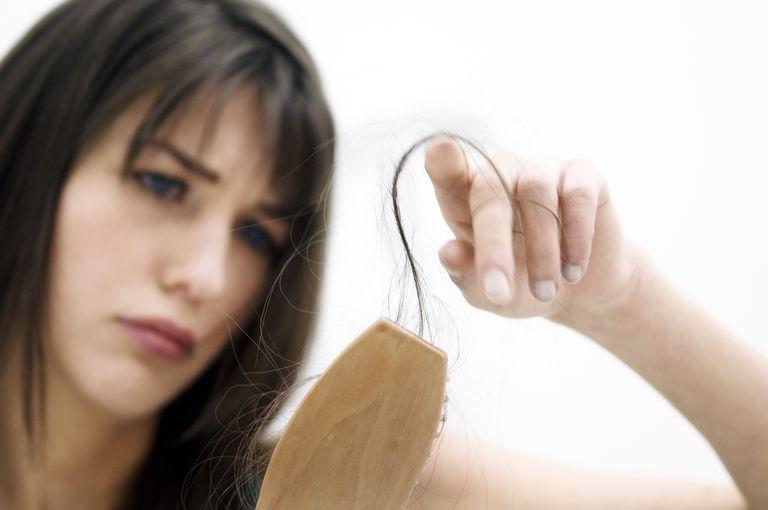Approximately 90% of the hair is growing at any time, while the other 10% enters a resting phase. Every two or three months the hair at rest falls out and allows new hair to grow in its place.
Telogen effluvium is the excessive shedding of hair that occurs one to five months after pregnancy. This is not infrequent, since it affects somewhere between 40 to 50% of women; but like most changes during pregnancy, it is temporary.
Is There Abnormal Hair Loss During Pregnancy?
The hair loss that is connected to the pregnancy usually occurs after delivery. During pregnancy, a greater part of hair enters the resting phase, which is part of the normal cycle of hair loss.
This condition is not serious enough to cause bald or permanent hair loss, and should begin to diminish within 3-4 months after delivery. If you feel that you are experiencing unusual hair loss during pregnancy, this may be due to a vitamin or mineral deficiency.
Why Do People talk about hair loss and pregnancy?
The most common period of hair loss occurs approximately three months after delivery. The increase of hormones during pregnancy prevents you from losing your hair. After delivery, the hormones return to normal levels, allowing the hair to fall out and return to the normal cycle. Normal hair loss that was delayed during pregnancy can all fall off at the same time.
Up to 60% of your hair that is in a state of growth can enter the state of telogen rest. Hair loss usually increases for 3-4 months after childbirth as hair follicles rejuvenate.
As noted above, this hair loss is temporary, and hair loss returns to normal within six to twelve months.
Can Hair Loss Be Related to Other Reproductive Health Problems?
Hair loss can be caused by everything that involves a change in the hormonal balance of estrogen in your system.
Hair loss can be the result of one or more of the following:
- Interruption of contraceptive pills or other types of hormonal contraceptive method
- Miscarriage or stillbirth or stillbirth
- Abortion
- A hormonal imbalance
The Positive Side of Pregnancy and Hair:
During pregnancy there is an increase in the level of estrogen hormones. Estrogen causes the hair to stay in the growth phase and stimulates the growth of your hair. While you are pregnant, you should expect full and luxurious hair.
Recommendations for Hair During Pregnancy and After Delivery:
There are a number of things you can do to have healthier hair and reduce hair loss during pregnancy and after delivery:
- Check with your doctor to ensure an appropriate balance of hormones
- Avoid pigtails, tight braids, hair weaves, braids and tight hair rollers because they may pull and stress your hair
- Eat a diet rich in fruits and vegetables, which contain flavonoids and antioxidants that can provide protection for hair follicles and promote hair growth
- Use shampoos and conditioners that contain biotin and silica
- Hair is fragile when wet, so be gentle; avoid fine tooth combs
- If you need to use dryers and other hot hair instruments, use the "Cool" position
Supplement your diet with the following nutrients:
- Vitamin B complex
- Biotin (possibly safe, oral and adequate)
- Vitamin C
- Vitamin E (probably safe if quantity does not exceed the recommended daily dose, possibly safe if it does)
- Zinc (probably safe when used orally and appropriately, probably unsafe when used orally in high doses)













No Comments